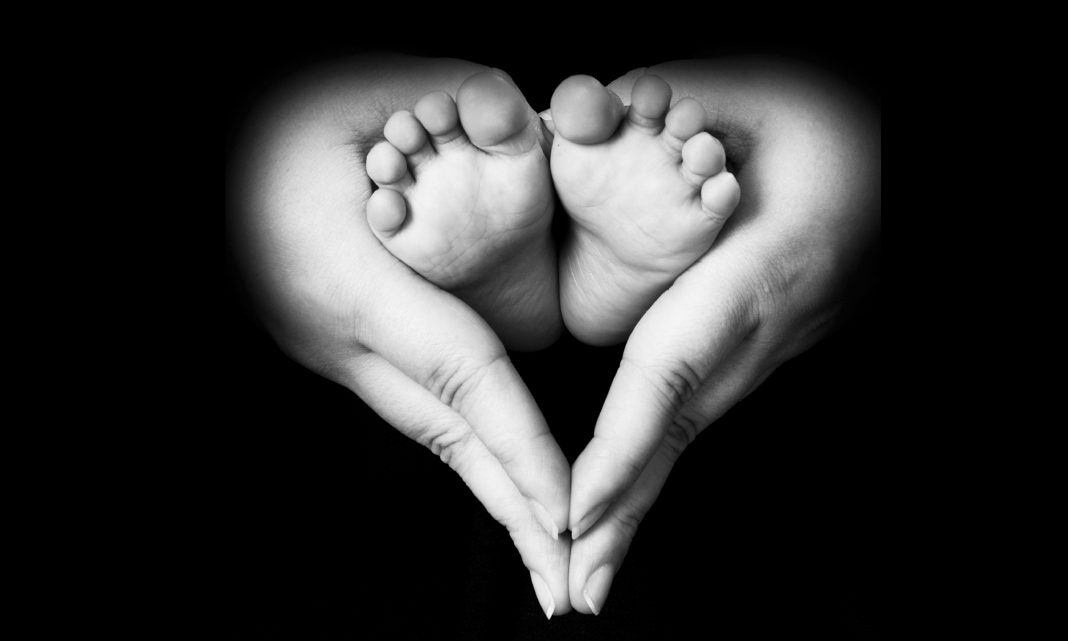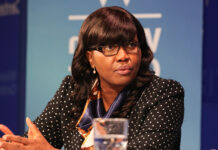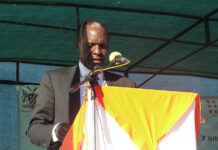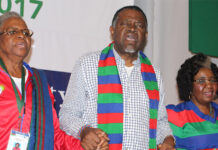By Sonja Smith | 12 February 2021
KAROLINA Elifas (32) has spent close to N$424 000 on 10 medical procedures to try and have children of her own, but biology continues to block her dreams.
When Elifas got married in 2013, it was the beginning of a new journey, one that she thought would also fulfil her dream of having two children.
Just over seven years later, she is still struggling to have children.
Her dilemma is a burden shared by many women.
In Namibia, an estimated 15% of couples have fertility problems.
A year after getting married, Elifas, who is employed as a director at a government department, started an assisted conception process, known as in-vitro fertilisation (IVF) to help her conceive.
It involves taking a mature egg from a woman’s ovary and mixing it with sperm in a laboratory before implanting it into the womb.
“I have spent N$424 000 to date. I want to have children and I will keep trying. I will not give up,” Elifas said last week.
Elifas said she went through six IVF cycles in Namibia and four in South Africa.
In many cultures, childless women suffer from discrimination and stigma. In addition, infertility services are not widely available in Namibia, while IVF is expensive and unaffordable for many.
Namibia has two fertility clinics – the Windhoek IVF Clinic and Cape Windhoek Fertility Centre.
When The Namibian visited the Cape Windhoek Fertility Centre earlier this month, more than 10 women had appointments to be helped with conception on that day.
Since it started operating in 2015, the centre has helped more than 2 500 people.
More than 384 babies have been born using the IVF method, including twins and triplets.
OPTIMISTIC
Elifas, the firstborn of four siblings, said growing up she always wanted to have two children of her own.
“I dreamed of bringing them up in the ways of the Lord and teaching them the importance of hard work, and to be somebody who makes a good impact in society,” Elifas said.
She said although she has a good family support system, she fears growing old without children.
“At times I feel down when I’m with family members and friends. When they talk about their kids, I feel isolated and I cannot participate because I don’t have any,” she said.
Elifas is full of praise for her husband of seven years, her mother and her siblings.
“Although he has children from a previous relationship, my husband is very supportive.
When I want to give up, he encourages me and gives me the strength to try again. I long to have my own children,” she said.
Elifas advised those in a similar situation to trust God and be optimistic. She said she finds comfort in reading the Bible.
“If you look at life closely, you will see that we are all lucky in one way or another. The happiest people in life are those who choose to be happy and content with what they have,” she said.
AGONY AND ECSTASY
*Helena Shikomba (39) from Ondangwa, a lecturer, two weeks ago said despite back-to-back miscarriages in 2017 she always assumed she could try again.
Her final attempt by natural means resulted in another miscarriage in 2018, and led to an ectopic pregnancy and one of her fallopian tubes having to be removed.
“Medical practitioners informed me about IVF and I started looking for options in and outside the country on the internet. Throughout this time, I was experiencing verbal abuse [from in-laws] over the fact that I cannot conceive,” Shikomba said.
Her in-laws, friends and even family members were putting her under pressure, but did not offer much support, she said.
“When you get married in my culture, everyone expects you to make children immediately – especially in-laws. My husband was sometimes supportive, but at times he was not, because he already has children from previous relationships,” Shikomba said.
“I felt alone most of the time and doubted whether IVF would work out for me. I doubted whether I would ever become a mother,” she said.
Nonetheless, Shikomba decided to brave the unknown and try IVF.
“It was a huge challenge, because my medical aid does not cover the process, and we had to pay everything in cash,” she said.
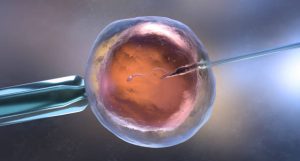
Shikomba spent N$30 000 on medication alone, and around N$50 000 on treatment and theatre fees.
Although it was an emotional experience, it bore fruit.
“I gave birth to a healthy baby boy and I am very happy. I praise God for this blessing and
I’m very thankful for the well-organised and professional staff at Cape Windhoek Fertility Centre.
“The service is expensive, but the reward is more than worth it. I would like to do it again but the price is the only problem. I wish the government could assist couples who find themselves in this situation,” Shikomba said.
Unlike Elifas and Shikomba, the infertility struggle of *Ndakula Shafodinho (34), a cleaner from Ohaingu village in the Ohangwena region, led to her partner of 10 years breaking up with her.
Shafodinho says he left her because she could not fall pregnant despite trying for many years.
“I discovered I had fertility problems when I tried to fall pregnant but failed. I started visiting state hospitals. I was given different types of medication – to no avail. I got depressed when my partner left me because I can’t fall pregnant,” she says.
Just before she lost hope and was about to give up, someone introduced her to a private doctor who did tests on her and found she had a blocked fallopian tube.
“He referred me to the Cape Windhoek Fertility Centre and that’s when I got my joy back.
As we speak, I am the mother of a 19-month-old healthy baby boy …
“The process is expensive. I spent N$75 000 in total, including medicine. If the government could meet us halfway, it would give many hope,” she says.
FRUIT OF THE WOMB
Oranjemund-based *Stella Haufiku (42) says her husband divorced her because she could not bear children.
They were married for seven years.
“After getting married in 2009, I started suffering from infertility in 2010. In 2016 I got depressed when my husband divorced me because I could not give him a child,” she says.
A doctor later carried out tests on her and found she could not conceive due to premature ovarian failure.
“The same doctor also informed me I may not be able to conceive with my own eggs, and that I may require IVF treatment with an egg donor,” Haufiku says.
Two years later, she remarried, she says.
“I got married to a kind, supportive husband. From the beginning, I informed him about my condition and he did not have a problem with it.
“We are a happy family now. I was blessed with triplets. A boy and two girls. The boy sadly passed on the same day I gave birth to him,” she says.
“I remain joyful with my two girls who are now 15 months old, and I remain grateful to the Cape Windhoek Fertility Centre.”
Haufiku says she spent N$96 000 in total to have children.
“The clinic charges N$65 000, and the donor N$20 000, and medication N$11 000. Medical aid is really needed to cover this process,” Haufiku says.
Beata Kandongo (37) from the Omusati region also has a happy story to share – N$47 000 later.
She says she and her partner had to take out a loan from a bank.
“My partner was not able to produce sperm to make me pregnant. The IVF procedure was our only option to become parents,” she says.
Kandongo says while IVF is expensive, it was worth it.
“Today, we have a beautiful daughter who is now two years old. It is a dream come true,” she says.
UNSUNG HEROES
The Cape Windhoek Fertility Centre is run by Drs Fred Kigozi and Olufemi Olarogun.
Olarogun confirms that 15% of couples in Namibia have fertility problems.
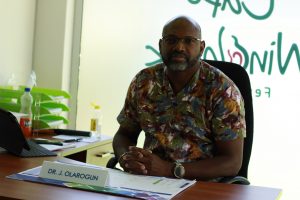
“It’s not just about wanting to have kids. It’s about how certain societies see it as well – especially in our black society,” he says.
He says stigma surrounds infertility.
“Things such as witches being involved [are suggested], or that a person has done something wrong, and some husbands pressurise women to have children,” Olarogun says.
He says this often leads to relationships breaking down, and could even cause domestic abuse.
“Society often thinks that it is always women who have problems, but males have issues as well, such as a low sperm count, not producing sperm at all, or having had a vasectomy when they were younger,” Olarogun says.
“In females, it is often about fallopian tubes that are blocked. This is due to an infection, and when that happens, the tubes and sperm don’t meet,” he says.
Another problem that could affect women is fibroids – abnormal growths that develop in or on a woman’s uterus, he says.
Olarogun says his motto is to do good and to find joy in helping patients.
“It’s a good feeling to see the happiness on these women’s faces. Some of them have been struggling to conceive for 10 to 15 years,” he says.
“You have to go through special training before doing it, and it’s very rewarding. About six weeks ago I did cycles, and as we speak they are all pregnant,” Olarogun says.
Kigozi says most patients battle with psychological issues, including social stigma, depression, and anxiety.
“Some first-time patients do not trust that the IVF method can work, and that becomes a challenge for us when we explain to them about the costs involved. Patients become frustrated and don’t follow instructions accordingly,” he says.
“Another challenge is the male factor. Some men believe if they already have a child they will not have problems with infertility, and that it’s always the woman.
We should bear in mind that age could also contribute to a low sperm count or quality, the man’s type of work, genetic defects, health problems like diabetes, infections such as STDs, and lifestyle,” Kigozi says.
He says there is a need for more support to infertile individuals.
“I am grateful to be able to make a difference in people’s lives, and seeing them succeed is the most rewarding feeling,” he says.
POLICY
The Namibia Statistics Agency produced a fertility report in 2014 as part of the 2011 Census.
The agency says this report was the first to be produced in Namibia based on census data.
According to the report, Namibians in rural areas are considered more fertile.
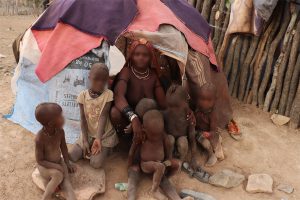
“This is due to a variety of factors, such as the higher cost of raising children and higher levels of education in urban areas, which in turn tend to be associated with greater use of contraceptives,” the NSA says.
At the time, the northern part of the country had the highest fertility rate – led by the Kunene region, while the Khomas region had the lowest.
The report found birth rates are notably higher among women between 20 and 34 years old.
“Another important factor is marital status,” the report stated.
The agency says policymakers are also concerned with adolescent fertility, which is relatively high in Namibia.
A University of Namibia study by mathematician Nelago Indongo and statistician Lillian Pazvakawambwa also explored the issue.
The study, called ‘Determinants of Fertility in Namibia’, published in 2012, stated: “Overall, results from the descriptive analysis show that fertility levels in Namibia have been decreasing over the past two decades.”
The decrease could be associated with an increasing trend in the use of modern contraceptives which has doubled since 1992, the study said.
“Age at first birth has remained constant, but the age at first marriage continues to increase. As a result, postponement of marriage increases the probability that women remain childless or that they have fewer children than desired,” it added.
The study was based on secondary data from the 1992, 2000 and 2006 Demographic and Health Surveys by the NSA.
*Not their real names.
*This article has been produced by The Namibian’s Investigative Unit with the support of the Open Society Initiative for Southern Africa.

